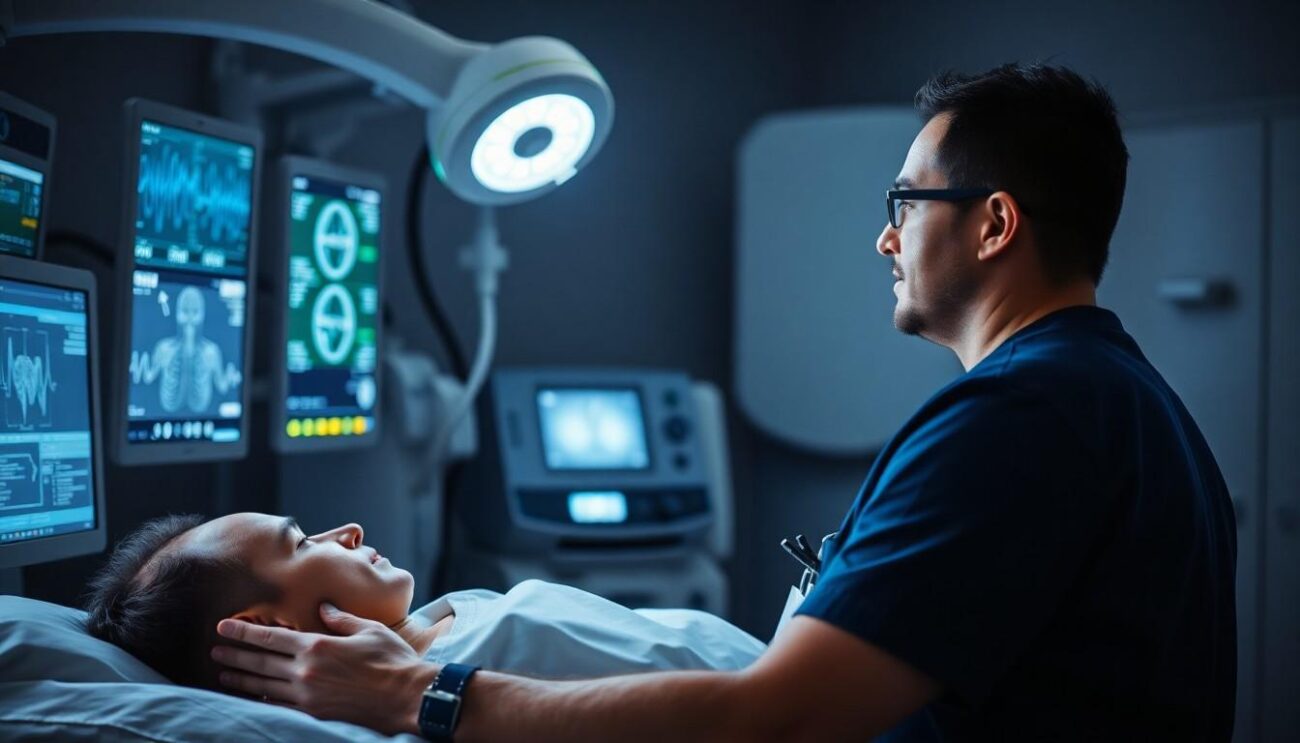Sleep technologists play a crucial role in diagnosing and treating sleep disorders affecting millions of Americans. These specialized healthcare professionals work in sleep labs and clinics where they monitor patients during overnight sleep studies using advanced diagnostic equipment.
Working alongside physicians and other healthcare providers sleep technologists collect vital data about breathing patterns brain activity heart rate and other essential measurements during sleep. Their expertise helps identify conditions like sleep apnea insomnia and narcolepsy that can seriously impact a person’s quality of life. As sleep disorders become increasingly recognized as major health concerns the demand for qualified sleep technologists continues to grow rapidly in the healthcare industry.
What Is a Sleep Technologist
A sleep technologist specializes in diagnosing and treating sleep disorders under the supervision of medical directors. These healthcare professionals hold credentials in sleep technology and oversee sleep center staff including technicians and trainees.
Key Responsibilities and Duties
Sleep technologists perform essential clinical tasks in sleep medicine:
- Monitor patient vital signs during overnight sleep studies
- Calibrate and operate diagnostic equipment
- Record brain waves, heart rhythms and breathing patterns
- Analyze collected data to identify sleep abnormalities
- Assist physicians in developing treatment plans
- Educate patients about sleep disorders and treatment options
- Train and supervise sleep technicians
- Maintain medical equipment and supplies
- Document test results and patient information
Work Environment and Settings
Sleep technologists work in various healthcare facilities:
- Hospital sleep laboratories
- Independent sleep centers
- Private medical clinics
- Research institutions
- University medical centers
Their work schedule typically includes:
| Shift Type | Hours | Frequency |
|---|---|---|
| Overnight | 8-12 hours | 3-4 nights/week |
| Day shifts | 8 hours | 2-3 days/week |
| On-call | Variable | As needed |
The role requires working in darkened rooms with specialized monitoring equipment while maintaining a quiet environment for sleeping patients.
Education and Training Requirements
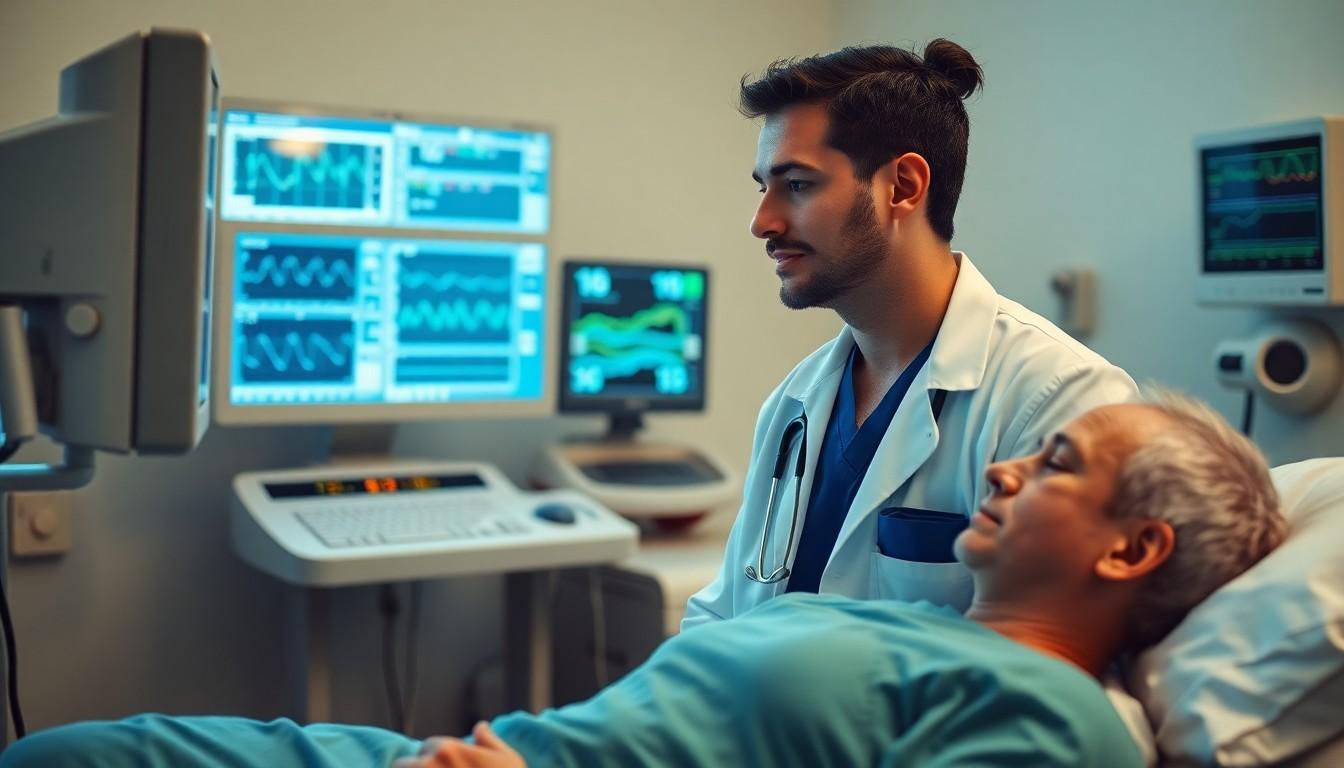
Sleep technologists complete specialized education programs and obtain professional certifications to perform diagnostic sleep studies. The path to becoming a qualified sleep technologist involves specific academic prerequisites and certification requirements.
Academic Prerequisites
- Completion of an accredited associate’s degree or certificate program in sleep technology through CAAHEP-approved institutions
- Core coursework in polysomnography fundamentals including:
- Anatomy and physiology
- Sleep disorder pathophysiology
- Mathematical modeling
- Computer applications in sleep studies
- Hands-on clinical training through supervised laboratory experiences
- High school diploma or equivalent as minimum entry requirement
- Board of Registered Polysomnographic Technologists (BRPT) certification
- Required clinical hours documented in an accredited sleep lab
- Passing score on standardized certification examination
- Ongoing continuing education credits to maintain certification status
- Additional specialty certifications available for advanced practice areas
| Education Component | Duration |
|---|---|
| Associate’s Degree | 2 years |
| Certificate Program | 6-12 months |
| Clinical Training | 80-120 hours |
| BRPT Exam Prep | 3-6 months |
Essential Skills for Sleep Technologists
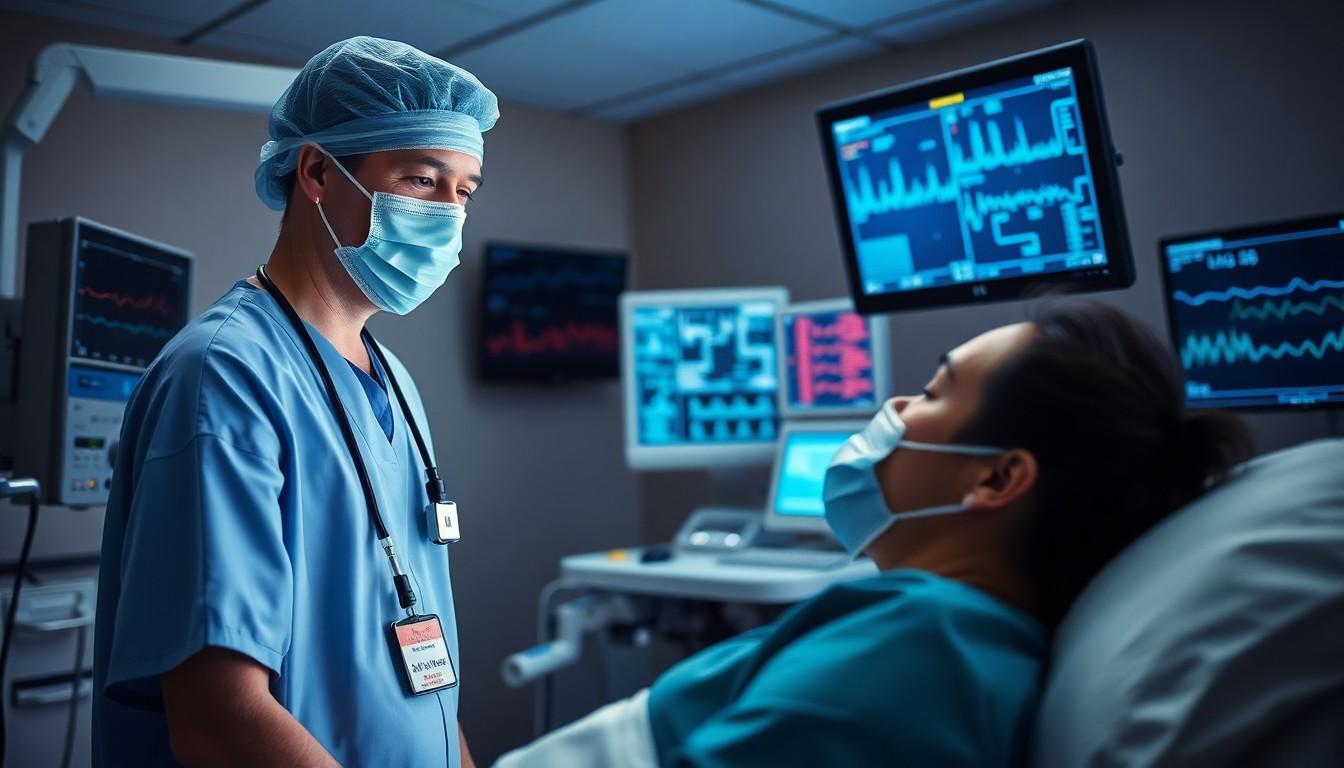
Sleep technologists require a combination of technical expertise and specialized skills to perform their duties effectively. These skills encompass both technical proficiency and patient care abilities.
Technical Proficiency
Sleep technologists demonstrate mastery in conducting polysomnographic (PSG) studies through simultaneous monitoring of multiple physiological parameters. Their technical skills include:
- Operating diagnostic equipment such as EEG machines EKG monitors with precise calibration protocols
- Conducting Home Sleep Apnea Testing (HSAT) with remote monitoring capabilities
- Performing specialized tests including Multiple Sleep Latency Test (MSLT) Maintenance of Wakefulness Test (MWT)
- Monitoring CO2 levels using capnography equipment
- Collecting analyzing integrating patient data to identify sleep patterns abnormalities
| Technical Skill | Primary Function |
|---|---|
| Polysomnography | Records multiple physiological parameters during sleep |
| HSAT | Monitors sleep patterns in home environment |
| CO2 Monitoring | Measures carbon dioxide levels during sleep |
| Data Analysis | Interprets collected sleep study data |
- Explaining sleep study procedures procedures clearly concisely
- Creating a comfortable sleep environment for optimal test conditions
- Monitoring patient safety throughout overnight studies
- Responding promptly to patient concerns questions during testing
- Maintaining detailed accurate patient records documentation
- Following infection control protocols standard safety procedures
- Communicating effectively with healthcare team members about patient status findings
Career Growth and Advancement
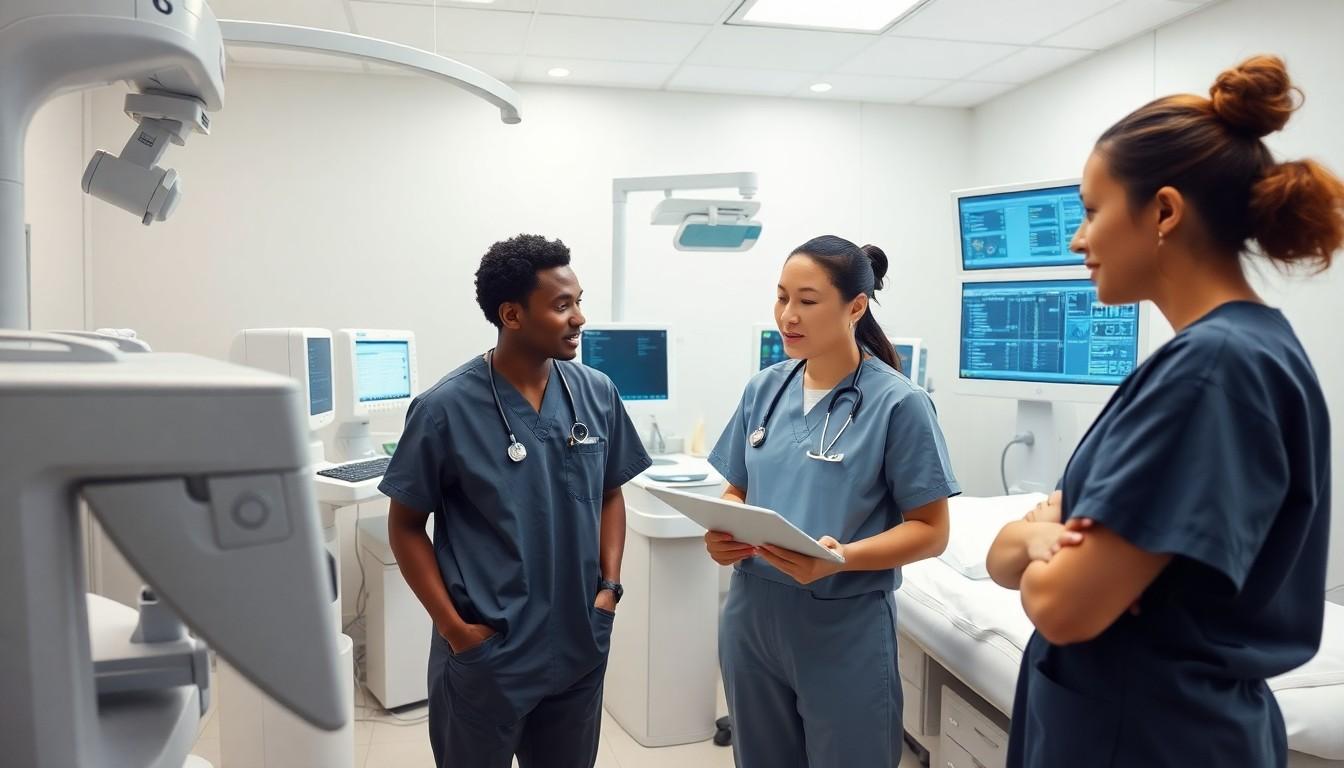
Sleep technologists have multiple pathways for professional advancement through specialized certifications, continuing education, and management roles. The field offers opportunities for both vertical and lateral career progression.
Specialization Options
Advanced certifications enhance a sleep technologist’s career prospects:
- Registered Polysomnographic Technologist (RPSGT) certification demonstrates expertise in sleep studies
- Certified Clinical Sleep Health (CCSH) credential validates advanced clinical knowledge
- Continuing Education Credits (CECs) maintain certification status and expand technical skills
Career advancement paths include:
- Sleep lab management positions
- Department director roles
- Transition to respiratory therapy
- Move into registered nursing positions
- Registered nurse supervisor roles
| Career Level | Experience Requirements | Typical Role |
|---|---|---|
| Entry Level | 0-2 years | Sleep Technician |
| Mid Level | 3-5 years | RPSGT Certified Technologist |
| Senior Level | 5+ years | Sleep Lab Manager |
| Advanced | 8+ years | Department Director |
- Advanced certifications (RPSGT CCSH)
- Years of clinical experience
- Management responsibilities
- Geographic location
- Facility type (hospital vs private clinic)
- Shift differentials for overnight work
- Additional specialized training
Technology and Equipment Used
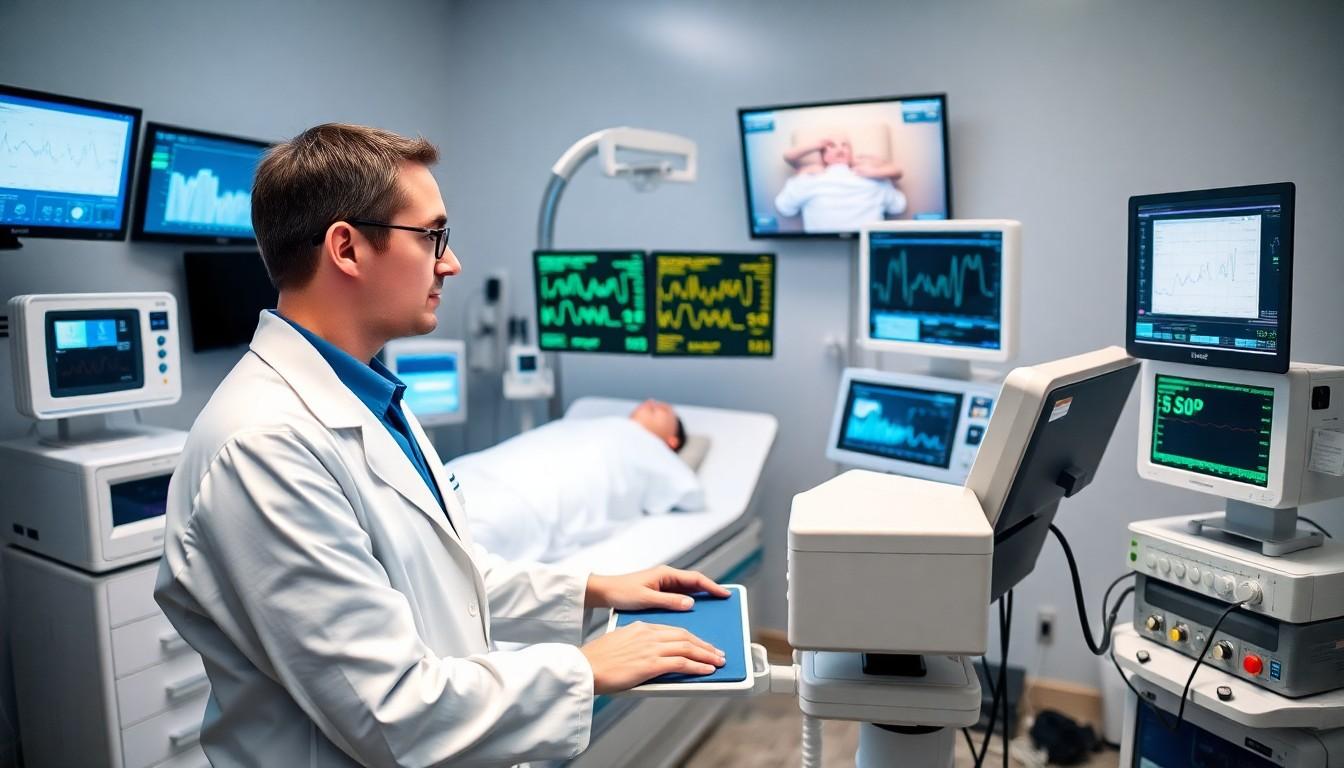
Sleep technologists rely on advanced medical equipment to conduct comprehensive sleep studies and diagnose various sleep disorders. These specialized tools enable accurate monitoring and analysis of patient sleep patterns.
Sleep Study Devices
- Polysomnography (PSG) Equipment records multiple physiological parameters including brain waves (EEG), muscle activity (EMG) heart rate (ECG) during sleep studies
- Pulse Oximeters measure blood oxygen saturation levels to detect breathing irregularities such as sleep apnea
- Multi-channel Recording Systems capture simultaneous data streams from different physiological sources for comprehensive analysis
- Electro and Spectrographic Recorders document detailed electrical activity from brain waves and other biological signals
- Data Acquisition Software processes real-time physiological signals from multiple recording channels
- Video Monitoring Equipment records patient movements and behaviors during sleep studies
- Remote Monitoring Platforms enable technologists to observe multiple patients simultaneously from a central station
- Automated Scoring Systems assist in analyzing large volumes of sleep study data for initial interpretation
- Digital Storage Systems securely archive patient records sleep study results diagnostic reports for future reference
Note: The content is presented in a structured format using bullet points for better readability and quick reference. Each piece of equipment is described with its specific function in sleep studies.
The Future of Sleep Technology
Sleep technology continues to evolve with advancements in digital health monitoring devices. The integration of artificial intelligence algorithms with traditional sleep study equipment transforms how sleep technologists diagnose sleep disorders.
Emerging Trends
Advanced AI-powered monitoring systems enhance the accuracy of sleep disorder diagnoses. Smart sensors track multiple physiological parameters simultaneously, including:
- Wireless biometric sensors for continuous vital sign monitoring
- Machine learning algorithms for real-time data analysis
- Cloud-based platforms for seamless data storage integration
- Automated sleep staging systems reducing manual scoring time
- Wearable devices collecting longitudinal sleep data
Impact of Remote Monitoring
Remote monitoring solutions expand access to sleep diagnostic services beyond traditional sleep labs. Digital platforms enable sleep technologists to:
- Monitor multiple patients simultaneously from centralized locations
- Conduct home sleep tests with professional-grade equipment
- Access patient data through secure cloud-based systems
- Provide real-time feedback during remote sleep studies
- Generate automated reports with enhanced accuracy metrics
The implementation of these technologies creates opportunities for sleep technologists to focus on complex cases while automated systems handle routine monitoring tasks. Sleep centers now incorporate hybrid models combining in-lab studies with remote monitoring capabilities to optimize patient care delivery.
Conclusion
Sleep technologists play a vital role in modern healthcare by helping millions of people overcome their sleep disorders. Their expertise combines technical skills diagnostics and compassionate patient care to ensure accurate sleep disorder diagnoses and effective treatments.
As technology advances and sleep disorders become more recognized the demand for qualified sleep technologists continues to grow. With numerous opportunities for career advancement and specialization sleep technology remains a dynamic and rewarding field that’s essential for improving public health and well-being.
Professional sleep technologists stand at the forefront of sleep medicine making significant contributions to patients’ quality of life through their specialized knowledge and dedication to advancing sleep healthcare.
